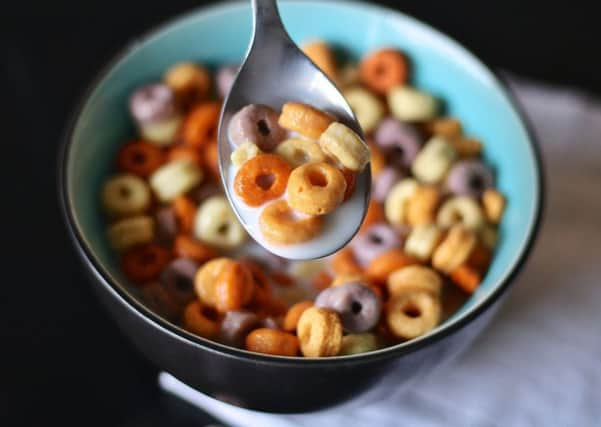Helpful advice to wean your family off sugar


British children are some of biggest consumers of sugar in Europe. A study by scientists at Birmingham University found that children are consuming an average of 75g of sugar a day (the equivalent of 19 teaspoons). That’s four times their recommended daily allowance. Small wonder that sugar has been singled out as the biggest contributing factor in the national obesity crisis.
It’s also blamed for a rise of nearly a quarter in the number of children under four having to have one or more of their milk teeth extracted. Sugar creates imbalances in energy that can contribute to erratic behaviour and mood changes, and paves the way towards type 2 diabetes.
Advertisement
Hide AdAdvertisement
Hide AdThe white stuff is ubiquitous. Everyone knows that you’ll find it in sweets, cakes and cookies, but did you know it’s also in many kinds of processed foods?
Here’s my advice on how to cut added sugar from your breakfasts as well as plenty of inspiration for alternatives.
Firstly, don’t make sugar right or wrong. Weaning your family off sugar will need planning and careful consideration if you want to avoid a mutiny! Certainly, don’t demonise sugar. Instead, educate your children on how it can make our bodies sick if you eat too much. A simple message in simple terminology will be far more beneficial than banning them from something they don’t understand. Trust that if you keep sugar out of their diet that they will be more sensitive to signals telling them they’ve had enough and praise your kids when they eat healthy food that is “good for our bodies”.
Try to avoid treating children with food at all (and especially not sugary foods), instead rewarding them with fun experiences – do a puzzle, take a trip to the park or making something together.
Advertisement
Hide AdAdvertisement
Hide AdThis can seem tricky if your child is a fussy eater. It may be tempting to offer them food treats just so they ‘eat something’ – for example ‘If you eat your vegetables, you can have a biscuit’. But this can make your child more interested in treats than healthy food. Of course, you have to decide on your house rules, but this sends the message that eating healthy food is a chore.
Understand where the sugar is creeping in:
l Fizzy drinks, squash and fruit drinks
l Fruit juice & smoothies
l Processed breakfast cereals
l Cakes, buns, sponge puddings
l Yoghurt and fromage frais
l Sweets, toffees, mints
l Chocolate bars/biscuits
l Jelly, ice lollies
l Flavoured milks
l Ice cream, frozen dessert
l Sweet spread, jam, honey
l Cereal bar, muesli bar, flapjack
Ditch sugary cereals
According to Public Health England, children often consume half their maximum daily sugar allowance at breakfast. When children start the day with a bowl of cereal, they’re starting with a bowl of sugar. Even those cereals that are marketed as being healthier options featuring bran and fibre are full of sugar. Breakfast cereals commonly aimed at children have the equivalent sugar content of two and a half chocolate biscuits.
Easy breakfast swaps:
l Boiled egg with wholemeal toast soldiers
l Scrambled egg on wholemeal toast
l Wholemeal toast and nut butter with chopped banana
l Overnight oats
l Porridge
l Greek yoghurt and berries
l Stewed apples, with yoghurt and sugar-free granola.
l Banana pancakes
l Muffin frittata
l Banana bread
If you would like some help with low sugar meal ideas and recipes for the whole family, sign up for my free newsletter via the website (www.donnapetersnutrition.co.uk).